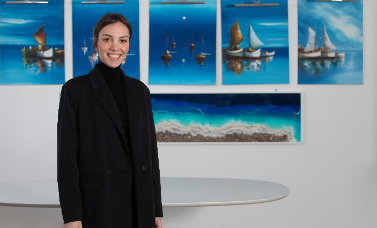
Believing that the circular economy has strategic importance in contributing to sustainability, Yorglass makes a difference with its production approach, products and projects.
Circular economy contributes to sustainability by encouraging a change of opinion towards more responsible and conscious consumption by addressing the issues of resource efficiency, waste reduction, energy saving and economic benefit. Standing out with its approach in this field, Yorglass adopts a circular economy policy at every stage, from product design to the materials it uses, from production processes to all the projects it implements. Yorglass, which carries out its activities within the framework of sustainability as a company with zero waste certification for all its businesses, believes that the circular economy serves as the locomotive for a more livable world.
Yorglass, the global and reliable supplier of the glass world, carries out its activities within the framework of sustainability with the solutions it develops, the methods it uses and the projects it undertakes. Emphasizing that the glass industry plays a very strategic role for a sustainable future, Yorglass Board Member Merve Yorgancılar Işıtmak drew attention to the importance of glass, which is a highly recyclable material, in the circular economy and made the following statements: “Recycling and remanufacturing require less energy than the production of goods from raw materials. All these efforts benefit from lower greenhouse gas emissions and overall energy savings in line with sustainability goals. Designing products by taking their life cycle into consideration and encouraging maintenance and repair services also extends the life of the products. This approach reduces the frequency of product replacement, thus minimizing the overall environmental impact associated with producing new goods.”
Steps to implement circular economy models at every layer of the company
Stating that glass is one of the most important inputs of the circular economy model and that they act with this sensitivity as Yorglass, Merve Yorgancılar Işıtmak said, “Our global priority is the world. Therefore, in order to reduce our environmental footprint while producing, we focus on developments that will contribute to the circular economy by adopting the principle that glass can be transformed infinitely, both in our production facilities and in the products we develop. We plan our work carefully in order to implement circular economy models in every field. We have determined that the packaging we use is produced from recycled materials as our most important purchasing criterion. In order to contribute to the circular economy, we separate our waste at source and support recycling within the scope of zero waste in all our businesses. Within the scope of our environmental management system applications, we determine our impacts with our approach to energy, emissions, water and waste management, implement efficiency studies to keep these impacts at a minimum level, and implement projects that increase environmental awareness. "We reach all our employees by informing them on this issue with Ming, our in-company interaction platform, and we increase awareness by instantly monitoring energy, water and waste management among all our employees," she added.
Supports the circular economy with award-winning products and impactful projects
Stating that they have implemented YUDA Cam Kaykay, the company's upcycled product that directly touches the end consumer and the Xone Design Awards 2022 award-winning innovative design, on the basis of responsible production and sustainable approach, Işıtmak said: “With this product, within the scope of the upcycling approach, the waste material in industrial production can be used for valuable products. We show that it can be a raw material. We also want our YUDA Upcycle Design Awards project, which we initiated with the aim of contributing to sustainability through the circular economy in the glass industry, inspired by YUDA Cam Kaykay, to become a tradition. As Yorglass, we see the circular economy as an integral part of sustainability and we support this with our Discrete Channel project. In this project, we accept arguments such as plastic and trim cycle time gain per unit product, reduction of PPMs caused by channel edge distance and burrs, ensuring production efficiency by increasing the number of mold cavities, reducing the impact on the environment with over 80 percent improvement in plastic raw material usage, ease of grouping with automation, and energy saving as our main goals.”







